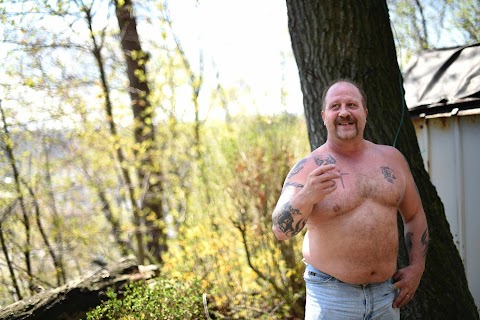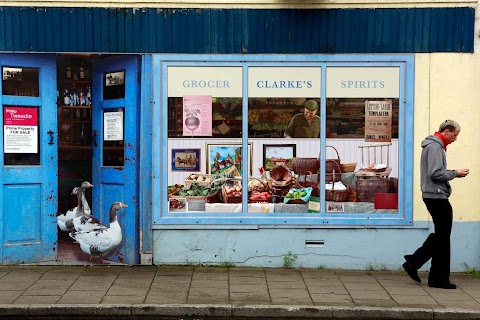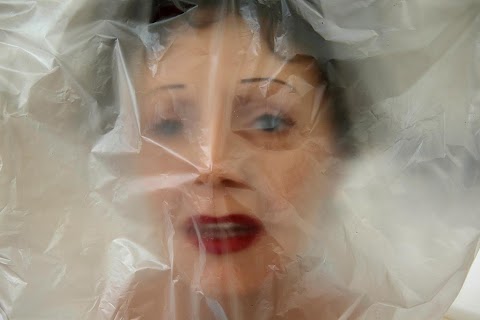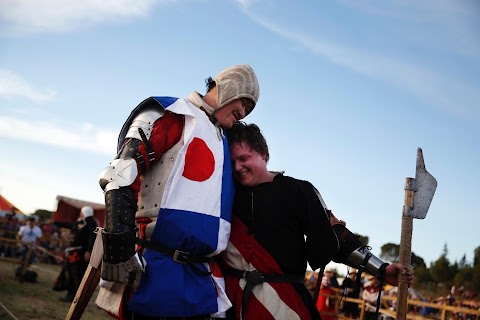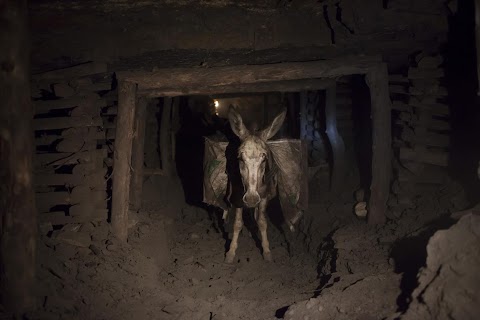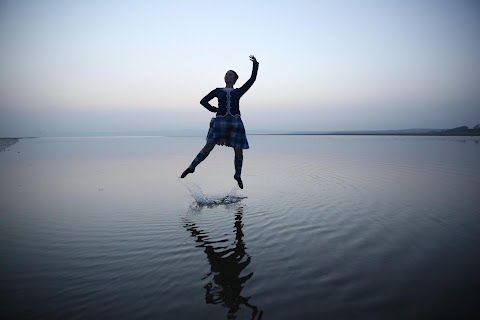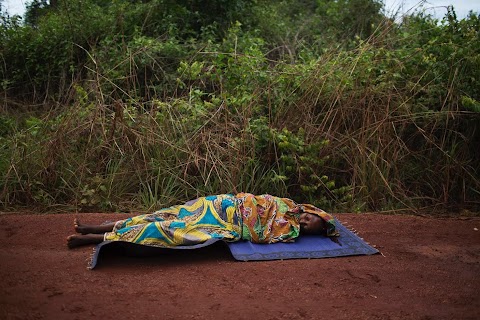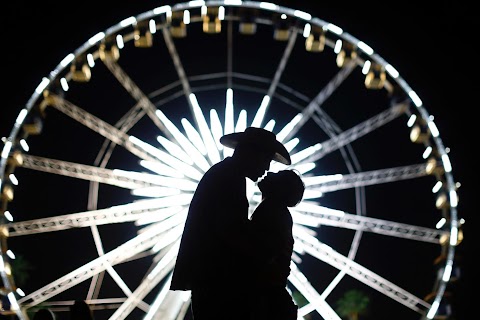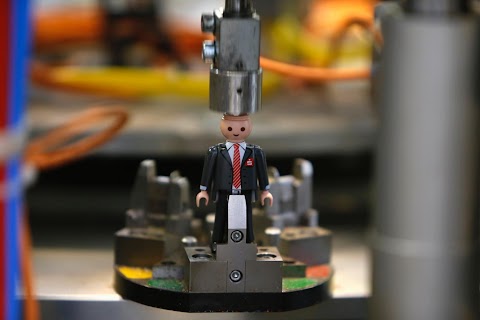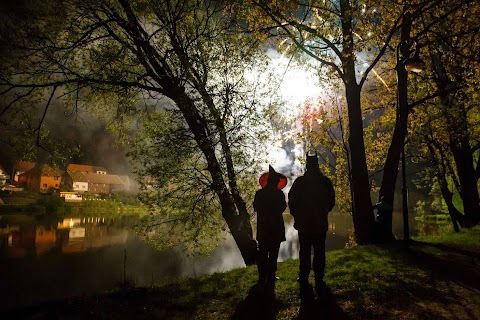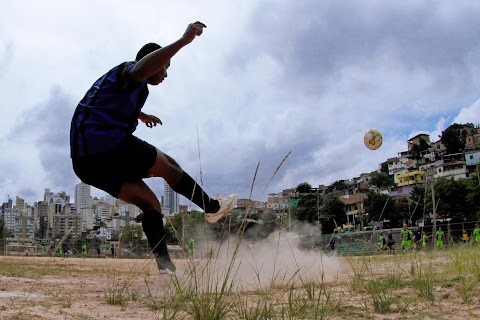
Brazil's 'naked' soccer
Peladas, or ‘naked’ football is a decades-old tradition in Brazil. Bare-footed players battle on dusty, grassless fields, kicking well-worn footballs, every weekend.
With the 2014 World Cup just one month away, locals from all walks of life are spending their Sundays playing soccer on the fields, streets and beaches of the tournament’s host cities.
Slideshow

People play "pelada" on Botafogo beach in Rio de Janeiro.

Players battle for the ball during a Sunday soccer match in the Borel favela of Rio de Janeiro.

Rivals of amateur clubs Nadave and Vila Real play a "pelada" in Sao Paulo.

Boys play soccer on a street closed to traffic for the day in Sao Paulo.

A boy sits on a discarded couch as he watches a Sunday match in the Bom Pastor neighbourhood of Natal.

Amateur teams Azulao (blue uniforms) and Novo Reino prepare to play "pelada" in the Sao Jose neighbourhood of Manaus.

Amateur teams Azulao (blue uniforms) and Novo Reino play a soccer match in the Sao Jose neighbourhood of Manaus.

Boys play a Sunday soccer match in the centre of Manaus.

A goalkeeper makes a save during a Sunday "pelada" soccer match in Cuiaba.

Players battle for the ball during a "pelada" on the beach of Salvador.

Players battle for the ball during a Sunday soccer match on the beach of Salvador.

A player scores a goal during a "pelada" on the beach in the Brasilia Teimosa district of Recife.

A man sits with a soccer ball as he watches a Sunday soccer match on the beach in the Brasilia Teimosa district of Recife.

People play a "pelada" on the beach in Fortaleza.

A man falls while playing soccer on the beach in Fortaleza.

Children play a "pelada" in front of the Mane Garrincha Stadium in Brasilia.

Children play soccer in front of the Mane Garrincha Stadium in Brasilia.

Discarded soccer boots hang from an electric wire where they were thrown by their owners over several months after Sunday "pelada" soccer matches in the Morro do Papagaio favela in Belo Horizonte.

A boy wears a national soccer team jersey with the name of striker Neymar on it, as he watches a "pelada" in the Cidade de Deus neighbourhood of Port Alegre.

A goalkeeper recovers the ball after a goal was scored against him during a "pelada" soccer match in the Cidade de Deus neighbourhood of Port Alegre.

Players of amateur soccer team Figueira pose for a photo before a "pelada" soccer match in the Cidade de Deus neighborhood of Port Alegre.
"It was on the streets, on the dirt fields and on the beaches that we became the stars of own childhood dreams."
Why do we Brazilians refer to our neighbourhood soccer matches as ‘peladas’? A search on the web brings up many answers, but not one is really definitive. In English ‘pelada’ means ‘naked’ in the feminine gender, but none of the answers I found has to do with playing the sport with no clothes on.
One version talks of street soccer where everyone plays barefoot, or with ‘naked’ feet, running after the ball without a referee or any regard for rules. The version that strikes me as most coherent is in reference to the fields where weekend matches are played - most of them are grassless, or ‘naked’, as the description fits.
While pro soccer fields are beautiful carpets of well-manicured grass, the peladas are usually played on just dirt and sand. The term has also been adopted to refer to a bad professional match. We often say, if a First Division match is boring, “What a pelada!”
One thing is certain – pelada has nothing to do with a naked woman.
When I was a kid peladas didn’t have to compete with video games for players. Streets didn’t have nearly the traffic they do nowadays and we turned them into a stage for peladas every afternoon after school. But Sundays were always, and still are today, the classic day of the peladas.
It was on the streets, on the dirt fields and on the beaches that we became the stars of own childhood dreams.
In the 1960’s I used to love going to watch the league tournaments on the beach, with teams that played 11 a side, unlike the normal beach soccer of just five. My neighbourhood team was Columbia. My friends and I would go early to the beach to play our own pelada before Columbia’s matches. We all wanted to be pro soccer players, but on the beach we wanted to be Columbia players.
We would also organise matches on our streets against kids from other neighbourhoods. In those peladas each of us became the pro player we considered idol, and for each goal scored we’d celebrate as if the sidewalk were a huge, packed grandstand. I still remember scoring a few goals and screaming, “GOOOOOOOOOOOOAL by Fisher.” Fisher was an Argentine player, idol on my favourite team, Botafogo.
Today when we walk by a pelada, either on the street or in some abandoned lot or on the beach, it’s impossible not to stop and watch for a few minutes. We usually cheer for the team that has a skilled player, or a team that’s wearing the jersey of one of our favourite clubs.
But better than just watching a pelada is to play one and pretend you’re in Maracana as the ace of your childhood dreams - the ace that doctors, engineers, lawyers, civil servants, butchers, bakers, businessmen, dentists and photographers always dreamed of being.

A general view shows a Sunday "pelada" soccer match in the Borel favela of Rio de Janeiro.
